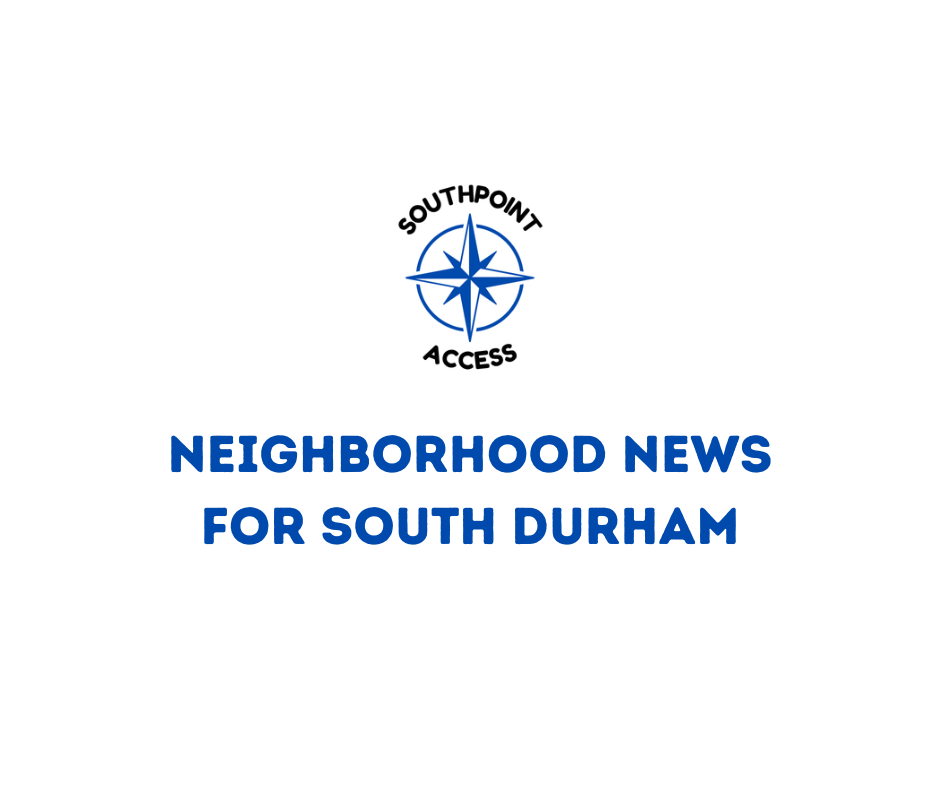Meet the Candidate: Fredrick A. Davis

Are you a Southpoint Access subscriber? Support our ultra-local news at this link!
Fredrick A. Davis, a Florida transplant who has lived in Durham since 1991, has been a pastor at First Calvary Baptist Church, guided the development of the Community Family Life and Recreation Center at Lyon Park, and served on the Durham Public Schools Board of Education.
Davis, 67, is now among 11 Democratic candidates competing for five seats on the Board of Commissioners.
Southpoint Access asked Davis to answer some questions for our readers. The same invitation has been extended to other candidates for County Commission. We will publish their responses as soon as possible after they are received.
Why are you running to serve on the County Commission?
Fredrick A. Davis: As a candidate for the office of Durham County Commissioner, my tagline is “For the People of Durham.” My strategy and the number one priority for my campaign is focusing on listening to and connecting with the citizens of Durham. I am a community leader committed to sharing the priorities that I believe will create a more equitable Durham that continues to thrive. These priorities are: governmental transparency and accountability; safe, affordable housing and thriving neighborhoods; youth-focused educational and economic initiatives; and expanded employment opportunities.
What are your strategies for addressing community safety and reducing crime in Durham County?
Fredrick A. Davis: We have to address the safety and security of Durham citizens and visitors. No person should feel their safety is threatened, whether at school, home, a business, a house of worship, another venue, or a city street. We must work with the Durham Police Department to develop actionable solutions to the most prevalent crimes in neighborhoods across the city, especially Districts 2, 3, and 4. Community policing, proactive anti-crime strategies and innovative community-led and supported initiatives should be explored and provided with appropriate funding allocations.
How do you plan to support economic growth and job creation within the county?
Fredrick A. Davis: My vision for growth and development in Durham is to establish policies that will develop economically distressed areas of Durham County while ensuring affordable housing and supporting resources, such as stores that offer nutritious food options, are part of these communities. Additionally, we must establish appropriate guidelines for development in rural areas and townships within the County so residents who have been part of Durham’s community can still afford to live and work in their hometown.
Durham County can leverage and expand its partnerships and work with the Durham Workforce Development Board and Work First Employment Services to enhance employment services for Durham residents. Additionally, the work of the Durham County Commissioners and these boards and offices could strategize and work with area businesses to assess and offer higher wages to those working in low-paying industries in the County. Additionally, it is critical to work with Durham County residents to receive their input.
How would you improve transportation and infrastructure?
Fredrick A. Davis: Funding is critical to investing in and improving transportation and maintaining roads and other general transportation infrastructure in Durham.
An accessible and affordable public transit plan and system are overdue for Durham County and the Triangle region of North Carolina because of the area’s rapid growth. The principal components of an effective plan need to include a robust system that offers timely connections to major employment areas, Durham’s two universities and one community college, cultural attractions, retail locations and the central transit station. Other components are affordable fares and a scalable system for future development and expansion. A comprehensive transit system would include expanded bus service and light rail. County government would need to work closely with Congressional leadership to secure additional funding.
What do you consider the most critical challenges faced by Durham County?
Fredrick A. Davis: The most pressing issues facing Durham are my top three priorities: stabilizing taxes in Durham County, enhancing public school education, and creating affordable housing solutions.
Stabilizing taxes would allow Durham citizens to use their income and financial resources to provide for their basic needs and the needs of their families. Inflation has caused stress on individuals as costs from living expenses to food have increased. We must ensure our citizens can afford to live in our city and county.
Education is a priority because providing a high-quality education to children and youth in Durham allows our children and youth to thrive later in life. We must offer our teachers a fair salary, enabling us to recruit and retain top educators in our county.
Durham continues to have challenges regarding the inventory and offering of affordable housing. As new homes and planned communities are constructed throughout the city and county, we must ensure current Durham citizens and individuals looking to relocate here have options that fit their varying budgets.
What are your plans to promote environmental sustainability and green initiatives in Durham County?
Fredrick A. Davis: I support efforts that ensure we protect and preserve our environment and reduce our carbon footprint as individuals, households, and businesses in Durham so we can leave our communities intact for future generations. These include initiatives centered around going green (eliminating excessive use of paper and non-recyclable paper products), reducing waste (encouraging active recycling), and minimizing air pollution (carpooling, public transportation, and alternative commuting options).
I plan to promote environmental sustainability and green initiatives in Durham County by looking at our growth. I support the prioritization of smart, balanced growth in Durham County. This includes incorporating environmental sustainability into planned developments. There would need to be a shared vision for growth that reflects the community’s needs and values.




![[Nerdspresso] A Nerdy News Round-Up - Jan. 23, 2026](/content/images/size/w600/2026/01/sinnersjordan.png)
